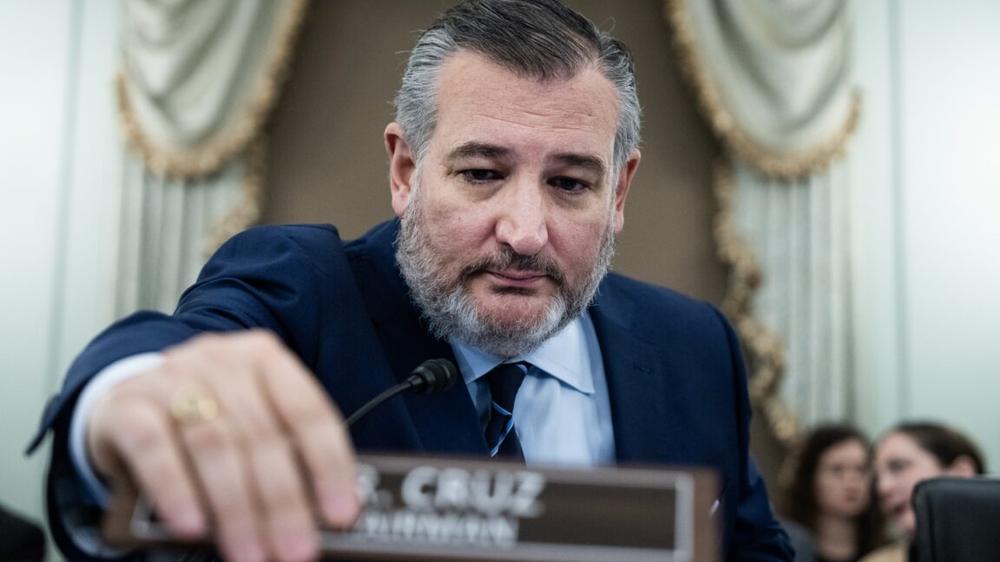This has been a good week for the US space agency in terms of the federal budget.
On Tuesday, a committee in the US House of Representatives passed a $24.8 billion budget bill for the coming fiscal year. Then, two days later a Senate committee passed a $24.9 billion budget for NASA. Both of these measures would keep funding more or less at the level of the current fiscal year and, for the most part, keep the space agency's programs going on their current trajectories.
These bills are not final. Both must move through the full House and Senate, and then be reconciled before going to President Trump for his signature. And time is running out, with fiscal year 2026 set to begin on October 1, just a little more than ten weeks from now.
The funding bills are striking because they repudiate the Trump Administration's call to cut NASA's budget by one-quarter, and its scientific programs in half. Congress also rejects the White House's desire to restructure the Artemis Moon program, getting rid of the Lunar Gateway and ending the space agency's use of the costly Space Launch System rocket and Orion spacecraft after two more flights.
Although this legislation will come as a welcome relief to many in the space community, there is still some uncertainty below the surface. In fact, the bills set the stage for a major showdown with the White House Office of Management and Budget this fall, and some in Congress are already publicly girding for a fight.
What could happen
The most straightforward course of action would be for the House and Senate to finalize a budget and pass it before the current fiscal year ends. It is entirely the responsibility of Congress to set spending levels for the federal government, but in most years it does not do so in a timely manner.
Over the last four decades, Congress has only passed all of its required appropriations measures on time about 10 percent of the time. Sometimes this has led to a government shutdown when the fiscal year ends, but more often Congress will pass a continuing resolution to extend funding at current spending levels.
This year, given the recent action on the budget measures, it is possible that Congress could pass Appropriations legislation for most of the federal government, including NASA before October 1.
Certainly there is motivation to do so, because the White House and its Office of Management and Budget, led by Russ Vought, has indicated that in absence of Appropriations legislation it is planning to take measures that would implement the Presidents Budget Request, which set significantly lower spending levels for NASA and other federal agencies.
For example, as Ars reported earlier this month, the principal investigators of NASA science missions that White House seeks to kill have been told to create termination plans that could be implemented within three months, beginning as soon as October 1.
Whether there is a continuing resolution, or shutdown, then, the White House appears likely to go to court to implement its spending priorities at federal agencies, including NASA.
Congress acknowledges the threat
This week the Ranking Members of House committee with oversight over NASA raised the alarm publicly about this in a letter to Sean Duffy, the Secretary of Transportation who was recently named interim administrator of NASA as well.
NASA appears to be acting in accordance with a fringe, extremist ideology emanating from the White House Office of Management and Budget that asserts a right to impound funds appropriated by Congress for the sake of executive branch priorities. Moreover, it now appears that the agency intends to implement funding cuts that were never enacted by Congress in order to "align" the agency’s present-day budget with the Trump Administration’s slash-and-burn proposed budget for the next fiscal year, with seemingly no concern for the devastation that will be caused by mass layoffs, widespread program terminations, and the possible closure of critical centers and facilities. These decisions are wrong, and they are not yours to make.
The letter reminds Duffy that Congress sets the budget, and federal agencies work toward those budget levels. However, the legislators say, NASA is moving ahead with funding freezes for various programs reducing employees across the agency. Approximately 2,700 employees have left the agency since the beginning of the Trump Administration.
Among the requests made by the legislators is that Duffy commit to follow the law.
"To reassure agency employees and the public that NASA will always follow the law, we call on you to issue a public statement affirming that the agency will spend all congressionally appropriated funds in recent, current, and future fiscal years as directed by Congress, and will not impound any funding," the letter states.
On Friday, another letter was sent to Duffy from more than five dozen Representatives in the House. It echoes similar concerns about the White House seeking to circumvent to normal budget process and implement its plans for NASA.
So what will happen?
A key source told Ars that the recent budget action in the House and Senate indicates that legislators are taking the impoundment threat from the Office of Management and Budget seriously. Their best weapon in this fight would be to pass a budget on time, and they appear to be trying to do so.
Privately, legislators have also been signaling that they intend to hold the line on NASA's budget. While Duffy gets up to speed, sources at the space agency told Ars he has begun to meet with a handful of lawmakers who have NASA interests in their states, and several have indicated that they do not support the White House's unilateral plans to radically remake the space agency. Sen. Ted Cruz, R-Texas, who chairs the Senate Committee on Commerce, Science, and Transportation, just moved a bill that backs NASA's existing plans and has emerged as a key supporter of the agency.
What is not clear at this point is how far the Trump Administration will go to attempt to implement its ideas for NASA. Is this a hill that Trump and Vought are willing to die on? Or was Trump's talk about a grand plan for Mars effectively dead when Elon Musk left Washington D.C, and Jared Isaacman's nomination to lead the space agency was thrown out of the airlock?
This week Congress struck back. But they may not have the final word.

